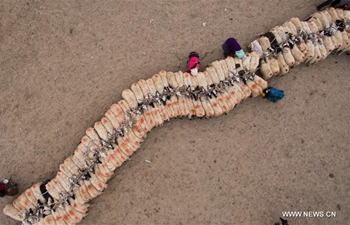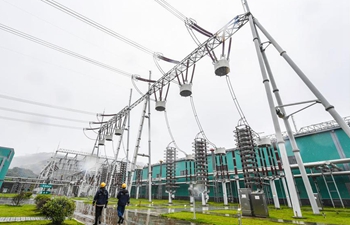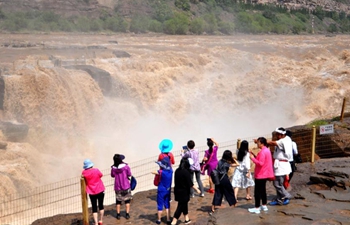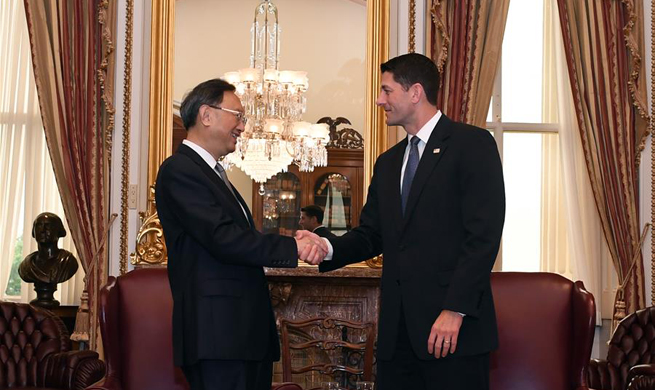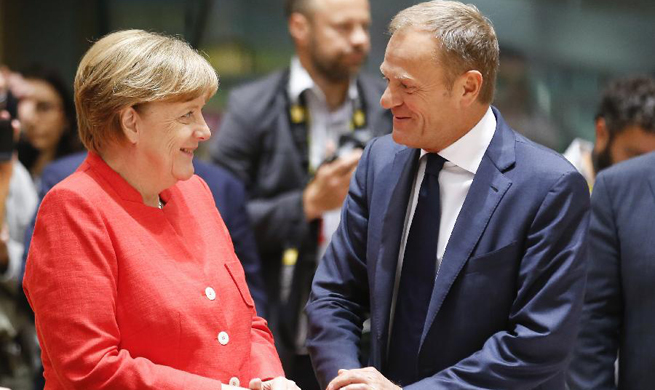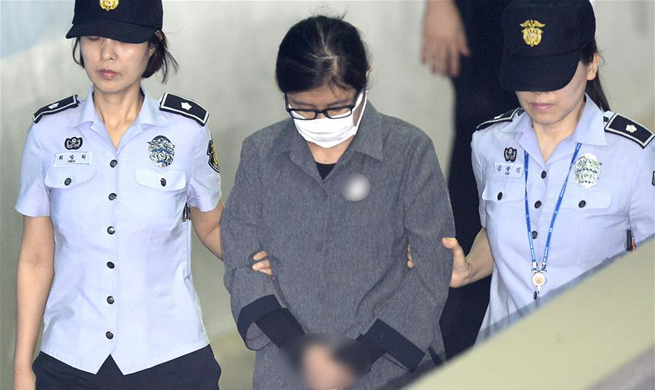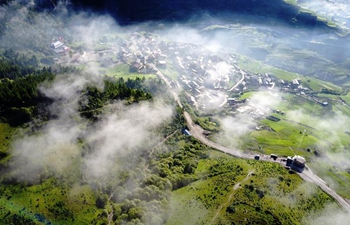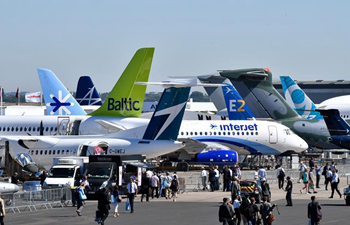DAMASCUS, June 23 (Xinhua) -- As the Islamic State (IS) continues to falter in Syria and Iraq, regional and world powers are walking a fine line to back their allies on the ground to reclaim IS-controlled territories without stirring up direct conflicts.
The IS occupied about one third of lands in Syria in its prime. Although it has shrunk about 50 percent after three years of anti-terrorism military operations by the international community, those areas are still of strategic value for all involved parties in the country.
The United States shot down a Syrian warplane and two Iranian drones this week that Washington said threatened its allied forces on the ground in Syria, a sharp escalation exposing an intense power struggle and possibility of direct confrontation in the post-IS era.
STRATEGY PREVIEW
The Kurdish-led Syrian Democratic Forces (SDF), with U.S. support, has been battling IS militants in operations to recapture Raqqa and other areas in northern Syria in recent months.
Meanwhile the Russia-backed Syrian army unfolded its offensives on several fronts, aiming to secure borders with Iraq and Jordan as well as south of Aleppo province.
It has deployed forces in key areas in southern and western Raqqa, the de facto capital of the IS in Syria, and on the outskirts of Deir al-Zour, attempting to take the lead in an all-out assault on the group's last refuge in case other forces backed by the U.S.-led coalition gain ground.
The Syrian warplane, which was shot downed by the United States on Sunday, was striking IS positions in Rasafeh. The recapture of Rasafeh will enable the Syrian army to advance toward areas in the eastern province of Deir al-Zour.
In response, Russia suspended cooperation with the United States in Syrian airspace and warned it would target any U.S.-led coalition's aircraft flying west of the Euphrates River.
Taking the last patch of the "caliphate" in Syria will grant involved parties a huge advantage in future power struggle in the war-torn country.
Russia, Turkey and Iran signed an agreement in the Kazakh capital of Astana last month to establish four main "de-escalation zones" in Syria for at least six months.
Observers said a reletavely calm situation will allow the Syrian army to focus on battles agasint IS militants.
Every party will use any possible means to reshape the political landscape in Syria, and in Iraq as well if possible, for their interests, said security expert Major General Abdullah al-Jubouri.
Most likely, Western countries and regional powers will try to recruit IS fighters to take advantage of their expertise in fighting against the Assad regime, as the opposition forces suffered a heavy loss in the battles in Aleppo, he said.
Meanwhile, French President Emmanuel Macron said France is no longer pushing for the departure of Syrian President Bashar Assad, in an interview with European newspapers published on Thursday.
A sudden change of its policy on Syria by France and a crisis within the Gulf Cooperation Council after Saudi Arabia severed ties with Qatar would damage U.S. efforts in building a broader coalition in Syria and certainly benefit Russia and Iran, Jubouri said.
ROLE OF KURDS
In the past few years, the U.S. support for Kurdish forces in Syria has sparked controversy. Kurdish militia group, the People's Protection Units, dominates the multi-ethinic and multi-religious alliance of the SDF which is the most important ally of the U.S.-led coalition on the ground.
Damascus and its allies consider all opposition forces against the Assad regime as terrorist groups.
Meanwhile, Turkey, Washington's NATO ally, has long expressed its concern about a Kurdish corridor along its southern border, arguing that the Kurdish expansion in Syria is illegitimate and that the Kurdish fighters are members of a terrorist organization.
Ankara is particularly concerned that the emergence of an autonomous or independent Kurdish entity in northern Syria may set a precedent for its own nearly 20 million Kurds and encourage Kurdish separatism at home.
Turkey-U.S. ties are strained due to their differences on the Kurdish issue, which could turn even worse if the Kurdish forces take advantage of power vacuum after the IS is swept from Raqqa to expand their influence.
Furthermore, Iraq's autonomous Kurdish region, which considerably expanded their territories after it seized IS-controlled areas, decided to hold a indenpendence rederendum in September this year, a move criticized by Iraq, Iran, Turkey and Syria where about 30 million Kurds reside.
The four countries will never allow such a step as it "threatens their territorial integrity," political analyst Ibrahim al-Ameri said.
The inevitable growth of Kurdish forces could trigger conflicts that endangers the whole region after the common enemy, the IS, is defeated, experts said.
Resovling conflicts in Syria need "diplomatic efforts based on principles of non-interference in internal affairs, inclusiveness in the process of national reconciliation, preserving integration of the country, in addition to commitment of humanitarian assatance," Ameri said.
All the involved parties should pursue a long-term strategy to consolidate peace and stability to uproot terrorism, he added.




